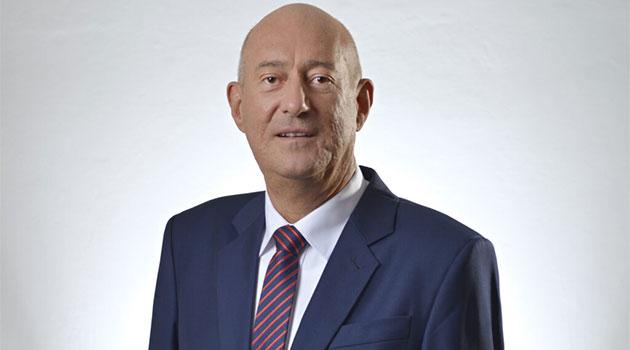Czech Supreme Court to review construction firm logo reminiscent of a Nazi symbol

Czech Prosecutor General Igor Stříž has turned to the Supreme Court in the case of a construction firm that used a logo reminiscent of a Nazi symbol. The Municipal Court in Prague acquitted the CEO, but Stříž is trying to overturn that decision by appealing to the highest court.
The appeal is available on the web as a public lawsuit. The Supreme Court has yet to decide the matter, according to the InfoSoud database.
The CEO was brought to court over a temporary building located on a construction site in Koněvova Street in Prague. On the wall of the structure, beneath the firm’s name, was an image of a skull with crossed tools underneath it, a hammer and a chisel.
The image is similar to the military insignia of the Totenkopf. The skull and crossbones was used as a symbol by the SS, the German Nazi party’s armed organization.
The inscription reading Stavební Služby (“Construction Services”) on the building also highlighted the letter “S” in both words. The District Court for Prague 3 found the defendant guilty of showing sympathy for a movement aimed at suppressing human rights and freedoms.
The court fined the CEO CZK 50,000 [EUR 2,000]. According to its ruling, the entrepreneur was expressing sympathy for the neo-Nazi movement by choosing that symbolism.
The Municipal Court, however, acquitted the CEO on appeal. That instance ruled that while the logo is distasteful, its use cannot be criminalized.
The appeals venue also claimed these visual elements did not refer to any extremist movement in particular. Stříž is insisting that the chosen symbolism expressed extreme nationalist opinions.
The prosecution argued that the CEO had the same symbols on the staff’s vehicles and work clothing; the defendant claimed to have no interest in history and to have associated the skull with a death symbol from Mexican culture. The Prosecutor General did not believe that defense.
“The intention of the accused, who knew the meaning of the symbols used, included showing sympathy for the neo-Nazi movement. If the accused had not wanted to sympathize with that movement, then he certainly would not have ordered its symbols, of his own free will, to be produced and he would not have depicted them directly on the property of the construction company of which he is CEO,” the appeal says.
Stříž has proposed the Supreme Court overturn the acquittal. The Municipal Court would have to issue a new ruling if so instructed.